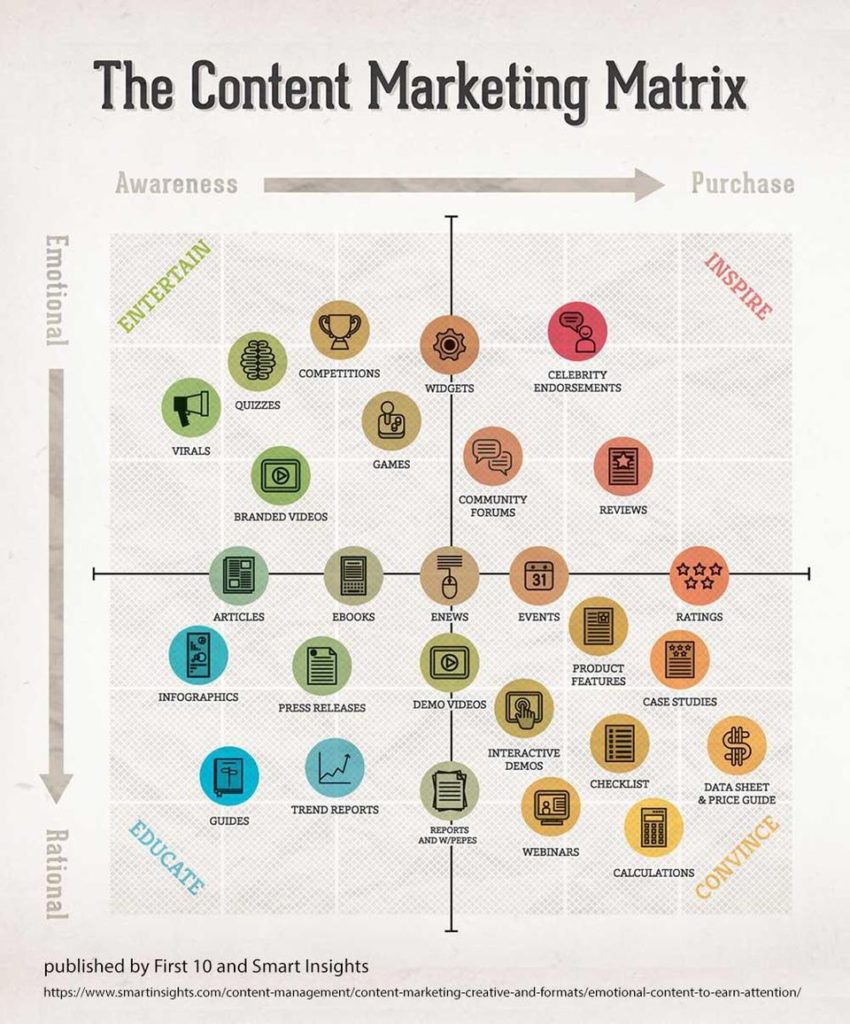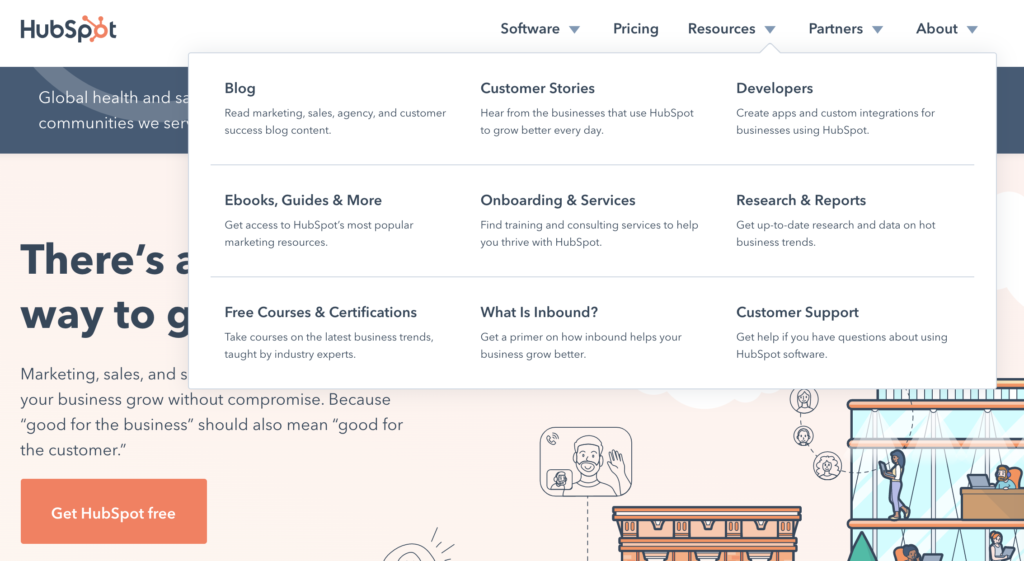The Truth About SEO
Help Wanted: SEO Consultant
A friend of mine recently posted a referral request on LinkedIn looking for an SEO consultant. She listed a lot of criteria she wanted, such as a local, freelance expert that was less than $100 per hour. As a longtime Search Engine Optimization (SEO) expert myself, I decided to make a comment and offer our services, as well as some insight. Here is what I said:
Jenny, SEO is no longer a thing. SEO is now a part of content marketing. You can optimize great content with SEO, but you have to have the content first. Social media is all about content too – the amplification of content.
SEO (if it were a thing) is broken down into 3 parts – onsite SEO, offsite SEO and technical SEO. Anyone can do onsite SEO (page titles, keyword-rich URLs and internal links) and technical SEO (make your website faster and fix errors), but offsite SEO (link building) is impossible without great content. SEO is pretty simple – learn best practices, identify your target list of keywords and get to work.
Content marketing, on the other hand, is super complex work that requires deep knowledge of your target market and the creativity and expertise to solve their problems. Content marketing also requires an array of skills, including copywriting, graphic design, discipline, consistency and organization. Small companies need to invest 5% – 15% of sales in marketing. The big companies, like Hubspot and Salesforce, invest far more. Anyone can build a lifestyle business by working hard. However, to build a great company and brand, you have to invest a lot of money in content marketing. You don’t need an SEO person – you need a content marketing person. My 2 cents.
I wrote this off the cuff and it seemed useful and valuable enough to share with you here.
What is SEO?
I started my own SEO agency back in 2001, so I know all about SEO (and everything else involving digital marketing twenty years later). SEO is great when it works because you get free, targeted traffic. And once you rank well, you tend to continue to rank well for a long time – until Google makes one of their big, nasty updates.
The good news is that Google doesn’t reward people for playing SEO games anymore. Page titles and keyword-rich URLs are nice to have, but what’s required to dominate the competition on Google these days is great content. That means high-quality, original blog posts or web pages that are 1,200 words more. Google is looking to give their customers what they want – great content that answers their questions and solves their problems. In order for your site to rank well in Google, you need great content that people read, link to and share on social media.
What is Content Marketing
If you are looking to learn more about content marketing, you can start with The Content Marketing Institute. Their definition of content marketing is:
Content marketing is a strategic marketing approach focused on creating and distributing valuable, relevant, and consistent content to attract and retain a clearly-defined audience — and, ultimately, to drive profitable customer action.
The intent of content marketing is to educate potential customers on a topic in order to demonstrate your expertise on the subject and to build trust. Content comes in many different forms, including video, infographics, blog posts, podcasts, lead magnets, ebooks and more. The challenge for business owners that want to improve their rankings in Google through content marketing and SEO is that creating valuable, relevant content on a consistent basis is a big job. Look at all the things you could create for your business:

Why Content Marketing Matters
The best way to appreciate the real value of content marketing is to look at the four steps in the buying cycle:
- Awareness
- Research
- Consideration
- Purchase
Content marketing attracts and engages potential customers in stages 1 and 2, while advertising and marketing do better in stages 3 and 4. But if you do a great job at educating your customers in the early stages of the buying cycle, then you don’t have to spend money on advertising.
And you are in the B2B space, content is even more important because most of your potential customers don’t reach out to sales for more information until they have done their own research and narrowed their shortlist of companies or products. Some studies show that people get 80% down the road on their decision before they reach out, so yes, content matters.
If you’re still not convinced, take a look at HubSpot. They have a massive amount of marketing resources that help create awareness for their software and help turn prospects into customers.

How Should You Do Content Marketing?
So the question remains, how can you create content for your business to attract customers and build trust? You could take things in-house, but chances are good that the person you hire to manage your content marketing program will not have all of the skills required to make it work. They may be a good writer, but they may not be a top-level expert in SEO, social media, link building, graphic design or marketing analytics. And if you outsource things to an agency, you may pay a fortune for work that doesn’t actually generate a positive return on investment in terms of new sales.
At WaddyFletch, we have found the best way for a company to master the art and science of content marketing and SEO is to start with an agency like ours for the first few months and then take some of the tasks in-house after some specialized training and guidance.
No matter how you get to work on creating amazing content that differentiates your business from the competition, you have to get to work. Here is a list of just some of the things involved in creating a successful content marketing/SEO program:
Branding & Positioing Work
- Market Research
- Competitive Research
- Brand Guidelines
- Brand Voice
- Ideal Customer Profile
- Customer Journey Map
- Customer Personas
Content Marketing Strategy
- Target Markets
- Overall Content Niche or Theme (what do you want to be known for?)
- Marketing Objectives and KPIs
- Goals by Online Channel (master 1-2 channels and play in the rest)
- Publishing Frequency
- Calls to Action
Content Marketing Tools
- WordPress (blog)
- Yoast SEO (WordPress plugin)
- Target List of the Keywords You Want to Rank For (pulled from Google Keyword Planner)
- Google Search Console (seriously, set this up now)
- Google Analytics
- Content Calendar (we use ClickUp for all project management)
- Canva (simple graphic design tool if you are a novice)
- Ahrefs (to monitor SEO rankings and inbound links)
- MailChimp
- Social Media Platform (we are currently using Agorapluse)
- Grammarly (check for typos)
Content Marketing Skills
- Writing
- Storytelling
Remember, complexity is the enemy of execution. There’s a lot to think about, but that’s why most people just dabble in building their brand through content. If you want to build a great company, you have to be willing to do the hard work that other people are not willing to do. Truth.